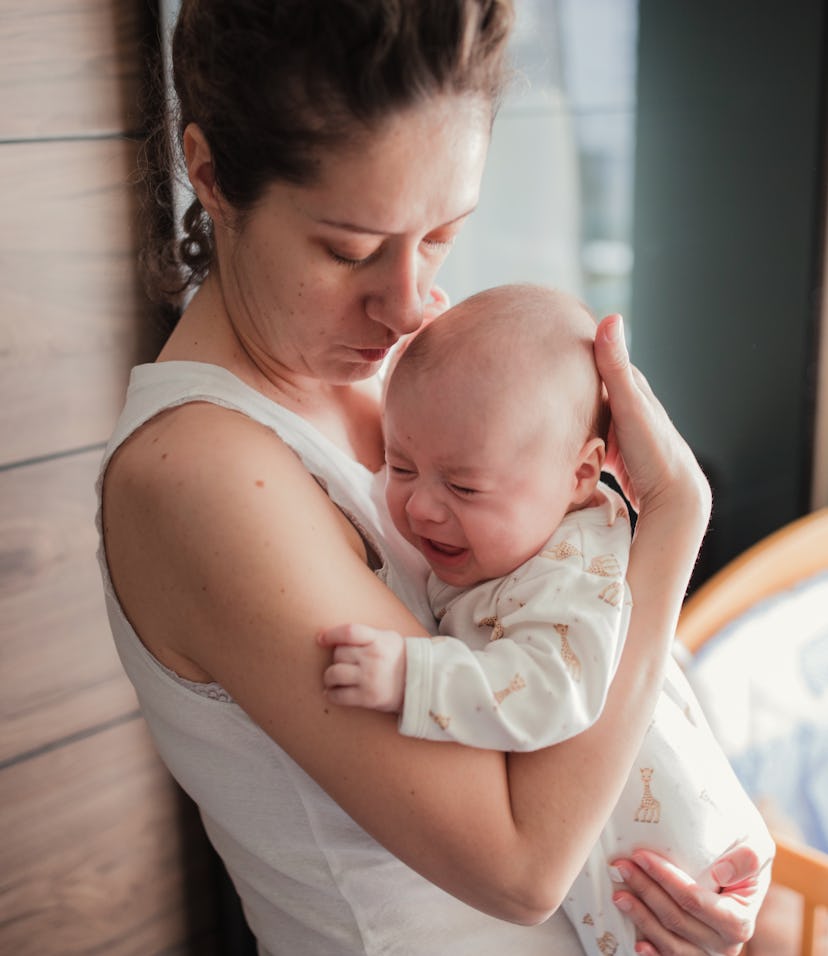Life

Maternity Leave Benefits Increased Dramatically In The Pandemic — Now They’re Going Back Down
In 2020, 53% of companies offered maternity leave options. Now that number stands at just 35%.
First the good news: When it comes to maternity leave, new moms are far better off now than they were 15 years ago. Compared to 2007, wwice as many companies are currently offering maternity leave benefits that exceed the legal requirement. And now the bad news: Since 2020, those benefit offers have declined precipitously, from 53% to just 35%. Paternity leave benefits fared just about as badly, dropping from 44% of employers exceeding the legal requirements in 2020 to just 27% today. These numbers, reported by the Wall Street Journal, were gathered by the Society for Human Resources Management (SHRM), based on a survey of 3,000 employers.
During the Covid-19 pandemic, when inequities were more highly visible than ever before and working moms faced disproportionate hardship, the number of maternity leave benefits soared, the WSJ reports — triple 2007 numbers. This growth arguably began even before Covid, with SHRM observing another sizable uptick in enhanced benefits around 2018 when employers attempted to lure new candidates amid labor shortages. Now the rate of maternity leave benefits among employers is back to pre-pandemic levels. Putting aside the recession of 2008-2009, this marks the only notable decrease of such benefits in 15 years. Even companies like Hulu that have retained benefits have trimmed their leave policies (in the case of Hulu, from 20 weeks paid leave to just 8). Whether this is a result of employers attempting to get back to pre-pandemic norms, struggling with inflation, or preparing for another recession is unclear.
And yet the need for family leave policies has not diminished. Of course, the US is one of only a small handful of countries that does not guarantee paid time off for new parents, and this lack of policy solution at the federal level leaves it to employers to fill in the gaps. The SHRM notes that the vast majority of employees surveyed (82%) ranked family leave as a “very important” or “extremely important” benefit, second only to healthcare (88%). It’s easy to understand why: A recent survey from Breeze found that a typical, eight-week maternity leave, if unpaid, would drain the savings of 74% of respondents.
And while the numbers from the SHRM seem discouraging, a look at the numbers as they relate to workers is even more bleak. According to MomsRising, a grassroots advocacy organization, just 17% of Americans have access to paid family leave through their employer. Even unpaid leave via the Family Medical Leave Act (FMLA) (which allows certain employees to take up to 12 weeks of job-protected, unpaid leave) does not provide sufficient support for American workers, even when they can afford it: 40% of Americans work for employers are exempt from FMLA, and do not have access to this benefit.
Despite the lack of actual policy wins, the prospect of paid maternity leave is a very popular one. A 2016 Pew Research Center survey showed that a vast majority of Americans support family leave: 82% believe mothers should be entitled to paid maternity leave and 69% support such benefits for new fathers.